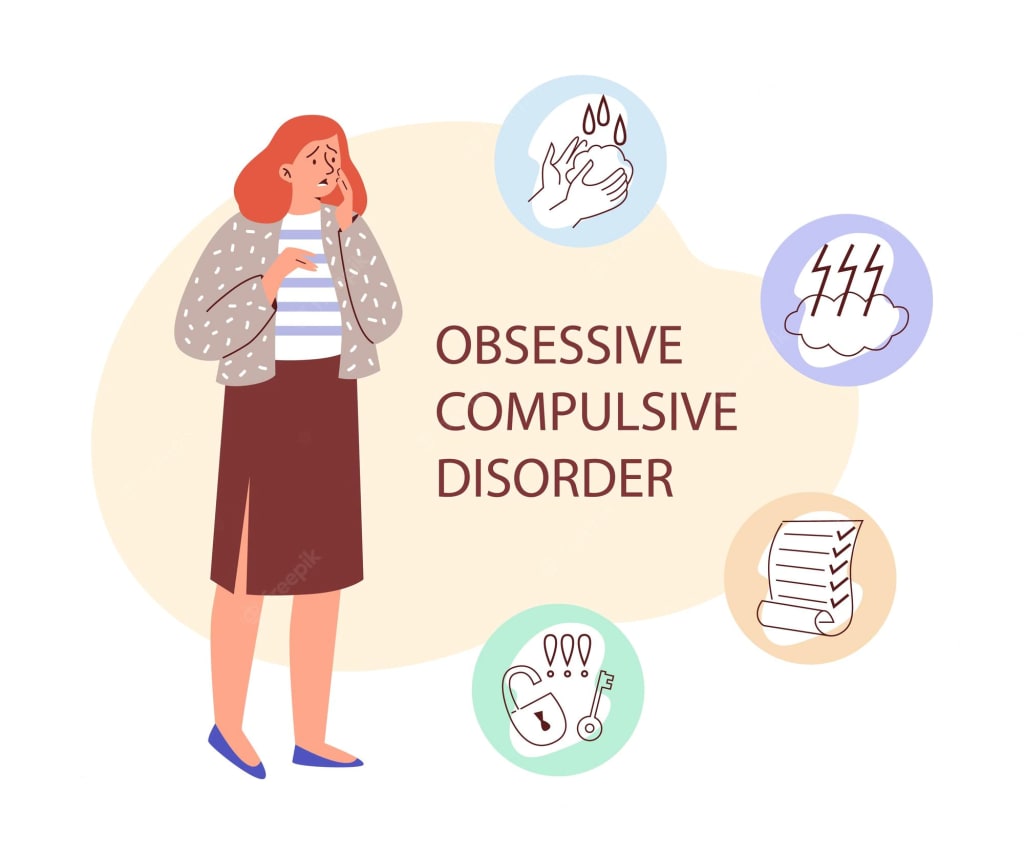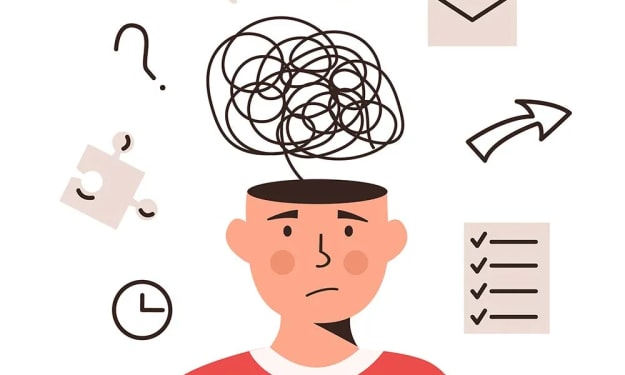Understanding the Connection between OCD and Eating Disorders
Understanding the Connection between OCD and Eating Disorders

Introduction
Obsessive-compulsive disorder (OCD) and eating disorders are two distinct mental health conditions that can coexist and interact with each other in complex ways. OCD is characterized by intrusive thoughts (obsessions) and repetitive behaviors (compulsions), while eating disorders involve unhealthy eating habits and distorted body image. This article aims to explore the connection between OCD and eating disorders, highlighting their shared features, possible causes, and treatment approaches.
The Link between OCD and Eating Disorders
Although OCD and eating disorders are separate conditions, research suggests a significant overlap in their symptoms, psychological mechanisms, and neurobiological underpinnings. Individuals with OCD may experience intrusive thoughts about their body image, weight, or food, leading to excessive worries and preoccupations. These obsessions can manifest as a fear of gaining weight, a desire for a perfect body shape, or an obsession with cleanliness related to food.
The compulsive behaviors associated with OCD, such as ritualized food preparation or strict dietary rules, can contribute to the development of eating disorders. Similarly, those with eating disorders often engage in repetitive behaviors, such as calorie counting, restrictive eating, bingeing, and purging, which share similarities with OCD compulsions.
Shared Features and Underlying Causes
Both OCD and eating disorders are thought to arise from a combination of genetic, environmental, and psychological factors. Dysregulation in serotonin, a neurotransmitter that plays a role in mood and impulse control, is implicated in both conditions. Family history and genetic predisposition can increase the likelihood of developing either OCD or an eating disorder.
Moreover, traumatic experiences, societal pressures, low self-esteem, and perfectionistic tendencies are common risk factors for both conditions. Individuals with OCD or eating disorders may also share traits like anxiety, depression, or obsessive thoughts and behaviors in other areas of their lives.
Treatment Approaches
Given the complex interplay between OCD and eating disorders, a comprehensive treatment plan should address both conditions simultaneously. Here are some treatment approaches commonly used:
Cognitive-Behavioral Therapy (CBT): CBT is considered the gold standard treatment for both OCD and eating disorders. It focuses on identifying and challenging irrational thoughts and beliefs, as well as developing healthier coping strategies. In OCD, exposure and response prevention (ERP) techniques aim to gradually expose individuals to their obsessive thoughts and prevent the corresponding compulsive behaviors. In eating disorders, CBT helps modify distorted body image, normalize eating patterns, and reduce compulsive behaviors.
Medication: Selective serotonin reuptake inhibitors (SSRIs), a class of antidepressants, are commonly prescribed to manage symptoms of OCD and eating disorders. These medications help regulate serotonin levels in the brain, reducing obsessions, compulsions, and anxiety. It is important to consult a qualified healthcare professional to determine the most suitable medication and dosage for individual cases.
Nutritional Counseling: In the case of eating disorders, working with a registered dietitian or nutritionist is crucial. They can help individuals establish a healthy relationship with food, develop balanced meal plans, and address nutritional deficiencies resulting from disordered eating.
Support Groups and Peer Support: Joining support groups or seeking peer support can provide individuals with a sense of community, empathy, and understanding. Connecting with others who have similar experiences can help reduce feelings of isolation and facilitate the sharing of coping strategies.
Best Medicine for OCD in India
While medication is not the sole treatment for OCD, it can be a valuable component of a comprehensive treatment plan. In India, several medications are commonly prescribed for OCD, including:
Sertraline: Sertraline is an SSRI that is often used as a first-line treatment for OCD. It helps alleviate obsessive thoughts and compulsive behaviors, reducing anxiety levels.
Fluoxetine: Fluoxetine is another SSRI commonly prescribed for OCD. It is effective in managing OCD symptoms and can help improve mood and overall well-being.
Clomipramine: Clomipramine is a tricyclic antidepressant and is sometimes used when SSRIs are ineffective. It affects serotonin levels and can reduce obsessions and compulsions.
It is important to note that the choice of medication should be determined by a qualified healthcare professional based on the individual's specific needs and medical history.
Conclusion
The connection between OCD and eating disorders highlights the complex relationship between mental health conditions. Individuals affected by these disorders often face significant challenges, but with the right treatment and support, recovery is possible. Comprehensive treatment plans that address both OCD and eating disorders can help individuals regain control of their lives and improve their overall well-being. If you or someone you know is struggling with these conditions, it is important to seek professional help from mental health specialists who can guide you towards appropriate interventions and support.





Comments
There are no comments for this story
Be the first to respond and start the conversation.